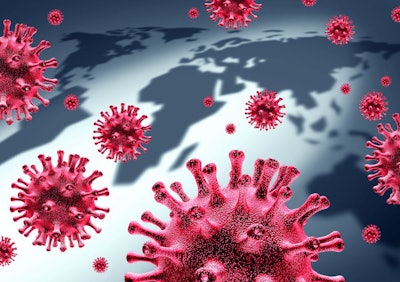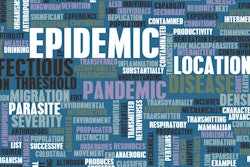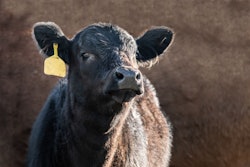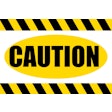
Adherence to government guidelines, adoption of CGMP sanitation standards protect ‘essential’ employees, feed production
U.S. animal feed mills will not be required to issue a product recall if an employee tests positive for the new coronavirus (COVID-19), the U.S. Food and Drug Administration (FDA) reported during its “COVID-19 Briefing for Animal Food Stakeholders,” on Tuesday afternoon.
“Currently, there is no evidence to suggest the transmission [of COVID-19] through animal food or animal food packaging,” stated Jenny Murphy, deputy director for food at the Center for Veterinary Medicine’s (CVM) Office of Surveillance and Compliance.
If an employee tests positive, animal food facility closures and cleaning requirements will be dictated by local and state health department protocols, which may vary depending on the level of community spread in an area.
“These decisions will be based on the public health risk of person-to-person transmission — not based on animal food safety,” Murphy said.
What do you do if an employee tests positive?
In the Occupational Safety and Health Administration’s (OSHA) “Guidance on Preparing Workplaces for COVID-19,” the agency outlines how a COVID-19 outbreak could affect workplaces and lists the steps employers can take to reduce the risk of worker exposure.
If an employee tests positive for COVID-19, Murphy offered several recommendations to keep the facility operational while protecting the other workers:
- Facilities should redouble their cleaning and sanitation efforts to control any risk that might be associated with infected workers.
- Sick employees should follow the U.S. Center for Disease Control and Prevention (CDC) quarantine guidelines.
- While employers would be obligated to inform employees of their potential exposure to COVID-19, they would be required to maintain confidentiality and not share the employee(s) identities.
Feed mills will not be required to conduct environmental testing after a positive test result because there’s no evidence of animal food or food packaging transmitting COVID-19 or any threat to animal food safety.
“Cleaning and sanitizing surfaces — such as a more frequent cleaning and sanitation schedule — is a better use of resources than testing to see if the virus is present,” she said.
Ensuring worker safety
To ensure the safety of their workforce, feed mills should take added steps to prevent the spread of COVID-19 by following current good manufacturing practice (CGMP) requirements for food safety.
“While not required under the CGMPs and the preventive controls for animal food regulation, this is the time to consider sanitizing food contact surfaces and equipment that workers may come into contact with,” she said, suggesting facilities only utilize Environmental Protection Agency (EPA)-registered disinfectant products for COVID-19.
Social distancing is key to preventing the spread of COVID-19 in feed mills — as well as in feed and grain stores. The CDC urges individual employees to maintain at least a 6-foot distance from each other.
Murphy recognized that this may not be possible in all animal food facilities; however, feed mill managers should evaluate, identify and implement operational changes that increase employee separation and stresses workers should maintain effective hygiene practices.
For the latest cleaning and social distancing instructions, Murphy recommends consulting with the CDC’s regularly updated Interim Guidance for Businesses and Employers to Plan and Respond to Coronavirus Disease 2019 (COVID-19) web page.
Essential worker status
To ensure that animal food production continues during the pandemic, feed manufacturers and their supply chain partners are well represented in the food and agriculture segment of the Department of Homeland Security’s (DHS) “Guidance on the essential critical infrastructure workforce” listing.
“We believe the current list under the food and agriculture section is wide enough to address all the various animal food industry sectors, including livestock food, pet food, renderers, ingredient manufacturers, food packaging, transportation and retail facilities, such as pet food and feed and grain stores,” she said.
As more states and cities issue shelter-in-place orders, hindering the movement of non-critical or non-essential workers, feed manufacturers have begun issuing their employees and drivers their own documentation to verify they comply with the critical infrastructure worker list.
Murphy suggests working directly with your state government if any questions or concerns arise. She recommends employers that are unsure of how to reach their state government agencies should consult the Association of American Feed Control Officials (AAFCO) directory for state control officials.














